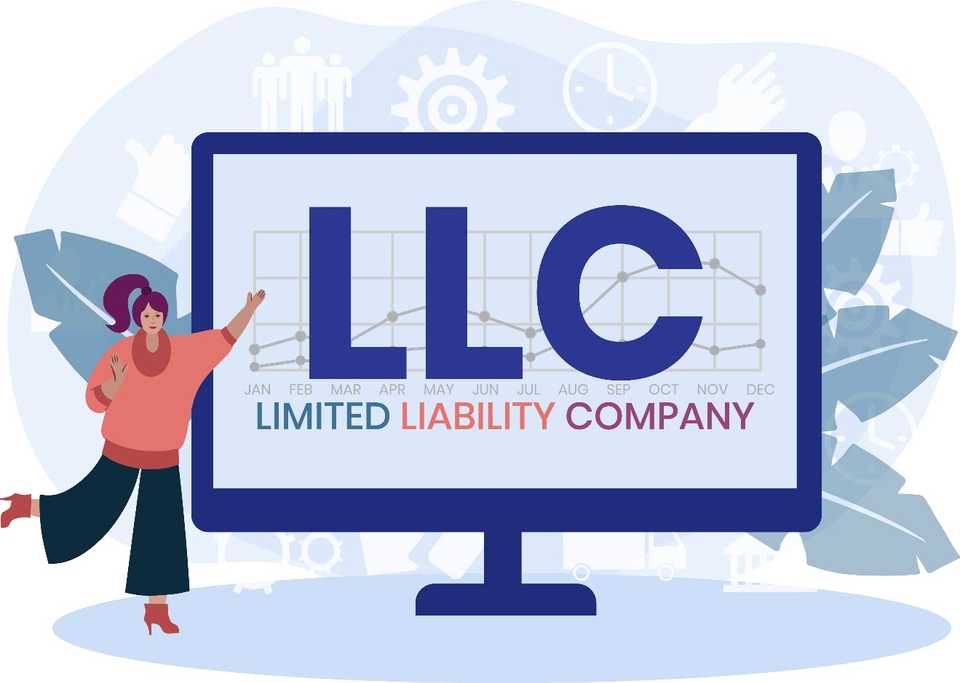Profit maximization is usually at the forefront of any business regardless of its industry.
Consequently, many managers tend to focus on client relations, research and development, and talent acquisition strategies without considering the essential role of tax optimization strategies, which start with incorporation.
Did you know that incorporating your business could enhance your company's performance, save you taxes, and simplify the process of passing on your company to your successor?

Unfortunately, many entrepreneurs see incorporation as just a formality without any tangible benefits.
That's where JuriGo comes in - we're here to set the record straight. We help you discover the tax benefits of incorporating your business and connect you with a qualified professional who can meet your specific needs.
So, if you're looking to take your business to the next level and save on taxes, look no further than JuriGo!
Incorporation and Stock Companies - The Winning Formula for Success
To fully appreciate the financial benefits of incorporating your business, it is essential to have a fundamental understanding of its principles. One important aspect to note is that a stock company is just one of the various ways to operate a business.
In Quebec, there are multiple business structures authorized by law, including sole proprietorship, general partnership, limited liability partnership, partnership, and joint ventures. Therefore, it is crucial to comprehend the basics of incorporation to take advantage of all its financial advantages.
What makes a joint stock company (JSC) the go-to business structure chosen by entrepreneurs?
To start off, a joint stock company has its own juridical personality which is separate and distinct from that of its members. The JSC therefore undertakes legal obligations under its own name, as a legal entity that is separate from itS members without engaging the responsibility of its directors.

Unfortunately, other business structures don’t share the advantage of having a juridical personality that is independent from its members, entrepreneurs are seen as one with their company.
This distinct juridical personality entails a patrimony that is separate from that of the company! Therefore, the debts of the company do not become those of its directors, and vice versa. This helps promote and protect the director’s personal liability and assets.
Do other business structures in Quebec share the same advantages?
Regrettably, this is not the reality for sole proprietorships and partnerships, as they lack a distinct legal identity and separate assets from their owners. As a result, entrepreneurs are personally responsible for all activities and liabilities of these businesses.
This significantly increases the level of risk associated with entrepreneurship, which is far from ideal. Let’s breakdown and look at the most notable advantage resulting from incorporation: the tax benefits it yields. It’s important to understand that tax laws and tax rates are much more favorable to corporations than they are to unincorporated businesses.
Find out how incorporating your company could work in your favor enabling you to reap sizeable tax benefits!
Reduced tax rate – First advantage of incorporation
One of the primary advantages of incorporation is that it enables the business to benefit from a lower tax rate than individuals. Unlike people, incorporated businesses are not subject to the graduated tax tables, i.e. that yield a higher tax rate for higher incomes.
In order to understand how corporate taxes work in Québec, it is important to grasp how each level of government sets its own tax rate for the fiscal year. In doing so, it enables corporations to benefit from certain deductions that reduce their tax rate.
This is the case for the QuÉbec Small Business Deduction (SBD) which allows a business to obtain a 7.5% reduction (in 2021) on its provincial tax rate if its paid-up capital in the previous fiscal year is less than $15 million.
To benefit from this deduction, the company must be a Canadian-controlled private corporation (CCPC), which means that it is a resident of Canada, not controlled by non-residents persons, by a foreign corporation or a public corporation.
After the general tax reduction, the net corporate tax rate is 15%, at the federal level. However, Canadian-controlled private corporations can claim the Small Business Deduction (SBD) to reduce their tax rate by 6% bringing it down to 9%.
That’s why it’s incredibly important to check if your company is eligible to benefit from this advantageous rate, and to do so with a specialist in order to ensure the accuracy of your conclusions.
Depending on the specific status of your business, here are the provincial and federal tax rates (including eligible Small Business Deductions that may apply):
| Tax Rate Applicable to the SBD (2023) | General Tax Rate | Tax Rate Without the Federal SBD (2023) | |
|---|---|---|---|
| Provincial | 3.2% | 11.5% | 11.5% |
| Federal | 9% | 9% | 15.0% |
| Tax Rates | 12.3% | 20.5% | 26.5% |
Taxes and sole proprietorship: What are the drawbacks?
The main disadvantage at hand is that any increase in profits is met with an increase in taxes. As a result, your hard work in growing the business will reward the taxman more than it should. You’ll pay more in taxes as your business generates higher profits, which is why incorporation becomes a necessity once your business’ revenue increases.
Does incorporating your business allow you to do income splitting?
Income splitting occurs when paying dividends from the corporation into the hands of family members. This can only be done in favor of one's own family members, its typically a measure taken in the hope of saving taxes. Is this really the case?
It depends! Since the 2018 tax law reform, the benefits of income splitting have dissipated. Indeed, it is now expected that dividends paid by a corporation on income splitting will be taxed at the highest tax rate.
Obviously, attempts were made to discourage the practice at the time, but there are still some exceptions that are attractive to owners of such corporations, namely:
- The dividend paid for reasonable work.
- The payment of dividend to spouse if the owner is over 65 years old.
- The family member works 20 or more hours per week for the business, year-round.
However, it is important to make sure that the splitting is done at an advantageous rate! The most effective way to achieve this is by working alongside a tax specialist who will be able to assess your situation and propose appropriate measures.
Capital gains exemptions – The benefits of incorporation when selling
There are numerous factors to consider when transferring a business. Hence, when deciding to transfer ownership of an incorporated business, the initial consideration is whether to sell the company’s assets or shares.

This inquiry is applicable only when the company has issued shares. The influence of the capital gain exemption on the sale of shares makes it more advantageous for a seller to transfer ownership of an incorporated business rather than a sole proprietorship or partnership.
We’re confident that with this knowledge in hand you’ll be more than tempted to incorporate!
| The 2023 lifetime capital gains exemption (LCGE) threshold was set at $971,190, which signifies that if you sell a business by transferring its shares, you will not be required to pay tax on the capital gain from the sale up to this limit. |
|---|
This exemption is a means of retaining a significant portion of the capital gain and avoiding taxation and another alternative to conducting smarter business decisions.
The capital gain exemption is cumulative!
That means that if you don’t use the full amount of your exemption in one transaction, you can carry over the unused portion and apply it to future transactions.
For example, if you sell a property and use only $50,000 of your $100,000 capital gains exemption, you can carry over the unused $50,000 exemption and use it for a future sale.
However, it's important to note that the carryover amount is subject to inflation adjustments and may increase over time. It's also worth mentioning that there are certain eligibility criteria and rules that apply to the capital gains exemption, and these may vary depending on your specific circumstances and the jurisdiction you're in.
It's always a good idea to consult with a tax professional or financial advisor for personalized advice. At this point you may be wondering: which businesses qualify for the capital gains exemption? To be eligible for the Canadian capital gains exemption (CCGE), a corporation must meet specific criteria outlined by law.
First foremost, it's important to note that only corporations can qualify for the exemption. Additionally, the corporation must be considered a small business and must have utilized over 50% of its assets for conducting business located in Canada for at least two years prior to the sale.
Other factors, such as the holding period of shares and restrictions on certain business types or partnerships, may also impact a corporation's eligibility for the CCGE.
What is the secret to maximizing capital gains exemption?
Do you want to know the secret to maximizing your capital gains exemption and optimizing its operation? It's totally possible!
By leveraging a combination of CGS, estate freeze, and family trust mechanisms, you can multiply your exemption rights and transfer your business among family members with ease.

However, keep in mind that this is a complex tax strategy that involves setting up a trust, which can be a daunting task. To ensure everything is done properly and legally, it's best to seek the guidance of a skilled tax lawyer who can help you navigate the intricacies of this process.
Don't let the complexity of taxes hold you back from getting the most out of your capital gains exemption. With the right help, you can make sure that your business and assets are protected and that you're taking full advantage of all the benefits available to you.
Are you ready to unlock the potential of the capital gains exemption for your corporation?
It's a complex and nuanced issue, but don't worry - there are experts out there who can help! By reaching out to a skilled tax lawyer or tax accountant, you can gain a deep understanding of the eligibility requirements and how to optimize the exemption for your specific circumstances.
These professionals live and breathe tax law, and they're passionate about sharing their knowledge with you. So don't hesitate to tap into their expertise - you'll be amazed at how much you can learn and how much you can benefit from their guidance.
Get ready to take your corporation to the next level with the help of a tax expert!
Dividend Tax Credit vs. Salary - Which Puts More Money in Your Pocket?
Following the incorporation of a company, the creation of shares allows for the distribution of dividends among shareholders.
However, this presents a complex situation for shareholders as they must choose between receiving compensation in the form of a salary or dividends, with each option carrying different implications for tax liability.
Get ready to save big on taxes! Paying yourself a salary as a shareholder-employee comes with some serious benefits. For starters, it's tax-deductible for the company, which means more money in your pocket.
Plus, you'll have the chance to make contributions to the QPP, QPIP, and RRSP, reducing your taxable income even further. And the best part?

Taxes are automatically withheld from your paycheck, so you don't have to worry about a thing. It's time to take advantage of these perks and maximize your tax savings like a pro! On the other hand, the payment of dividends involves a tax credit in favour of the shareholder who receives them.
This type of remuneration has the advantage of simplicity when compared to a more complex payroll system. However, the shareholder will still have to manage his own taxes at the end of the fiscal year, since no withholding tax is deducted. It's time to settle the debate once and for all - who pays more taxes, those receiving income in the form of salary or dividends?
Here's the inside scoop: in most cases, the tax bill will be the same!
Thanks to the tax principle of integration, the government has designed a system that ensures shareholders who work for the company are not let off the hook when it comes to taxes. So rest assured, you won't miss out on your fair share of taxes, no matter which route you choose.
Estate freezing and tax planning with a specialized lawyer!
Looking to maximize your tax savings and secure a solid business succession plan? Don't leave it to chance! With every company being unique, there's no one-size-fits-all solution when it comes to tax strategy.
That's why it's crucial to consult with a specialized lawyer who can help you navigate the complexities of tax planning. Whether you're deciding between a salary or dividends, an expert in tax law can provide tailored advice to optimize your savings and ensure you're making the most of your hard-earned money.

So why wait? Take your tax game to the next level and secure a successful business future with estate freezing and tax planning! For many entrepreneurs, the eventual transfer of the business to a successor is an integral part of their business plan. An estate freeze is an excellent way to plan for business succession while saving taxes on the transfer.
In practical terms, an estate freeze is a tax process that consists of transferring the future value of a company's shares to other people (often the children who inherit the company) so that this value accumulates in their hands, while the owner retains the current value of the company's shares.
The owner retains the value of the shares and control of the business and defers taxation on the capital gain until the shares are actually disposed of. In practice, the appreciation in value of the shares in question is generally transferred to a family trust holding the shares for the benefit of family members.
What if you could save big on taxes? An estate freeze can help do just that! What are the tax advantages of an estate freeze? Tax savings! Since the owner gives up the future value of the business and keeps only the current value, the business ceases to increase in value.
As a result, if the owner freezes their shares and dies 10 years later, the shares will still be worth the same amount, $1 million, and the tax will be calculated based on that value.
On the other hand, the capital gain that accrued in the hands of the family trust or beneficiaries directly between the freeze and the actual transfer is not subject to taxation because the freeze had the effect of transferring that same capital gain to new shareholders.
As you can see, the estate freeze is an essential tax planning tool to ensure optimal business succession.
However, it requires the operation of a corporation because of the transfer of capital gains in the form of shares.
Looking to save big on taxes for your business? Find a business Lawyer!
While securing a successful business succession plan? Look no further than an expert business lawyer! With their help, you can incorporate your business and take advantage of powerful tax-saving strategies, including the lucrative estate freeze.
It's easier than you think to find a legal professional to incorporate your business; simply fill out the form at the bottom of the page and JuriGo will quickly find a lawyer in your area. Not only is it free with no strings attached, but it also helps you find qualified lawyers!
So, what are you waiting for? Take the plunge into incorporation, contact us!